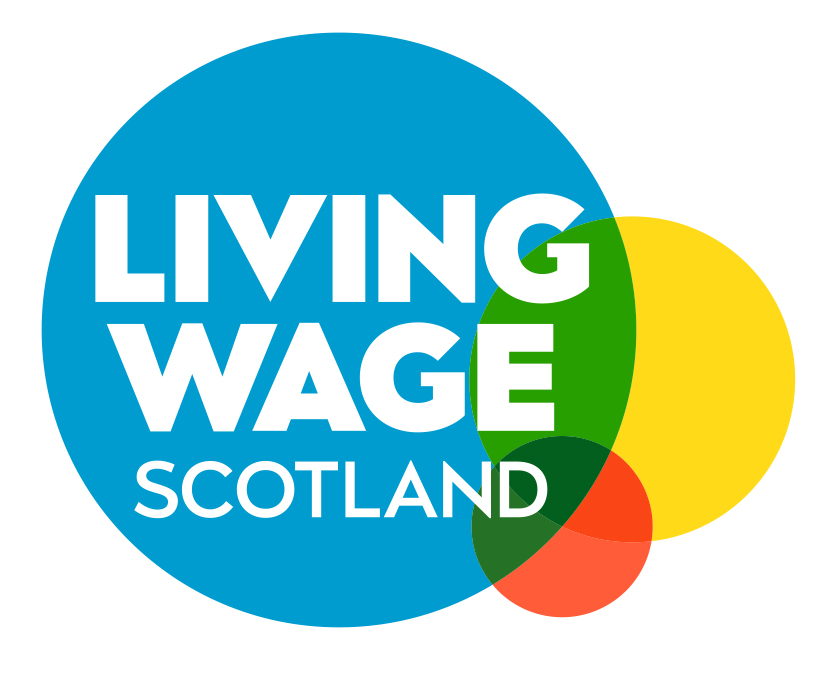We recently caught up with Seonaid Mann of South of Scotland Enterprise (SOSE) who are members of the Eildon Living Wage Action Group. SOSE is the economic and community development agency for the Borders and Dumfries and Galloway and Seonaid is looking forward to working with employers across the region to achieve Living Wage accreditation.
Tell us about your organisation and your role in Making the Borders a Living Wage Region
I am delighted to represent South of Scotland Enterprise (SOSE) on the Scottish Borders Living Wage Action Group. SOSE is the economic and community development agency for the Borders and Dumfries and Galloway, and we are one of the first of Scotland’s Enterprise agencies to have Fair Work embedded within our legislation. How we treat people matters to us and we want to support this across the region too. So far, we have helped the group with the promotion and communication using our own networks and social media channels. Being a fairly new member of the group, I am looking forward to continuing to support the group going forward.
Why do you think the real Living Wage is more important than ever?
The importance of paying our workers the real Living Wage is quite simple really. It’s about doing the right thing by our people. As we continue with the recovery from the impacts of the pandemic, many of the people, communities and businesses across the South of Scotland and across the country as a whole have been detrimentally affected, whether that be through loss of jobs, loss and/or reduction in income, closing of businesses (both temporarily and permanently), loss of social contact, loss of loved ones, physical and mental well-being…the list is endless. And not only that, but research is telling us that it is those who are at the lowest end of the income spectrum who have felt the worst effects of the pandemic. Paying the real Living Wage to all workers as an absolute minimum is critical for both individuals and society as a whole. According to statistics, 9% of everyone living in the Scottish Borders is considered income deprived – that’s almost 1 person in every 10 and that’s just not right.
Why do you think committing to the real Living Wage is important to the Scottish Borders as a whole?
There’s little point in talking about it, unless we actually do it, so we need to take action. Committing to and promoting the benefits of paying the real Living Wage is one of many ways an organisation can take tangible, measurable steps to improve the economic and social well-being of its workers and therefore the people and communities in the Scottish Borders. By improving the economic and social well-being of the area, we improve happiness and overall well-being of individuals, and that means we improve both the present and the future for our children and our children’s children.
But it’s not just about increasing our worker’s pay and therefore increasing their overall income and ability to be able to afford the basics. It’s also about making them feel more valued – the more valued they feel, the more fulfilled they are likely to be; the more fulfilled they are, the more likely they are to be productive, to go above and beyond for their employer. This has positive knock-on effects on individuals and their families as well as increasing productivity and therefore overall success of a business. As a business becomes more successful, the more it is likely to be able to expand, provide more employment opportunities, support career enhancement, invest in learning and development and potentially even be able to do more to ‘give back’ to the local community and economy. This develops into an upward spiral which has considerably more advantages than disadvantages.
What do you think are the barriers that must be overcome to see more workers in the Scottish Borders paid the real Living Wage?
The most obvious barrier is recovery from the effects of Covid-19. So many businesses and organisations across the Scottish Borders have seen unprecedented financial losses and hardship since the beginning of the pandemic. It will take many of them years to recover from the effects and that is only if they have managed, and continue to manage, to ‘weather the storm’.
Many businesses and organisations just can’t see how they would be able to find the extra cash to pay all of their workers the real Living Wage, because doing so will increase their monthly payroll. In the short term they just don’t have the cash to do so at the same time as staying afloat.
Add into that the fact that more than 90% of the organisations across the Scottish Borders are small and micro owner-run organisations with fewer than 10 employees. So many business owners are utterly exhausted by the stress which the last 21 months or so has created…and that’s on top of the usual, and not inconsiderable, stresses caused by owning and managing a small business. It’s often exhaustion that results in business owners just not being able to see ‘the wood from the trees’. They are unable to look at their business objectively, to see how they could diversify – increase or develop product lines or services, see where they could cut costs, increase income and productivity, develop their marketing and social media strategy, think up new promotional ideas. In so many instances, none of that is through any fault of their own as they focus on the daily operational priorities of their business.
However, there are organisations like South of Scotland Enterprise which can help. Sometimes all it takes to turn a corner is a new perspective, a sympathetic and understanding ear from a business expert who’s been there themselves and who truly understands the challenges. An expert who isn’t emotionally invested in an organisation can be the input that’s required to boost morale and energy levels and help business owners look objectively and see past the sometimes all-encompassing and overwhelming challenges which many are facing on a daily basis. There is a huge amount of help and support available, from access to training and development, support with marketing strategies and use of business diagnostic tools, and in some cases access to funding in the form of grants and loans. The knock-on effects of an organisation or business owner being able to see beyond the day-to-day struggles and make improvements for the future, are that the business is likely to become more successful. As a business becomes more successful, it should become more profitable, which frees up income to increase wages and gets them onto the upward and progressive spiral of success.
What’s the best thing about your job?
There is so much that I love about my job. The variety and autonomy which I have on a daily basis, as well as the collaborative and supportive people I work with and for. Add this to the opportunity to make a positive difference to the people living and working in the South of Scotland, a region which I love and cherish, and it’s about as good as it gets.
What’s been getting you through the pandemic?
I have used the pandemic to really take stock and count my blessings. I feel privileged to live in a beautiful rural area, where I have access to the countryside straight from my front door. I think without that, my family, and a job I love, I would have found the last 2 years considerably harder.
What are you hoping for in 2022?
From a professional perspective, I would love to see more and more organisations across the South of Scotland embrace the benefits and opportunities of paying the real Living Wage, as well as adopting the principles of Fair Work as a whole.
From a personal perspective, other than a lottery win (!), I would love to see the world move on and learn from what the pandemic has taught us, to start taking real positive action to accelerate the just transition to Net Zero, and if I could assure the health and happiness of the people I love, then even better!
—

